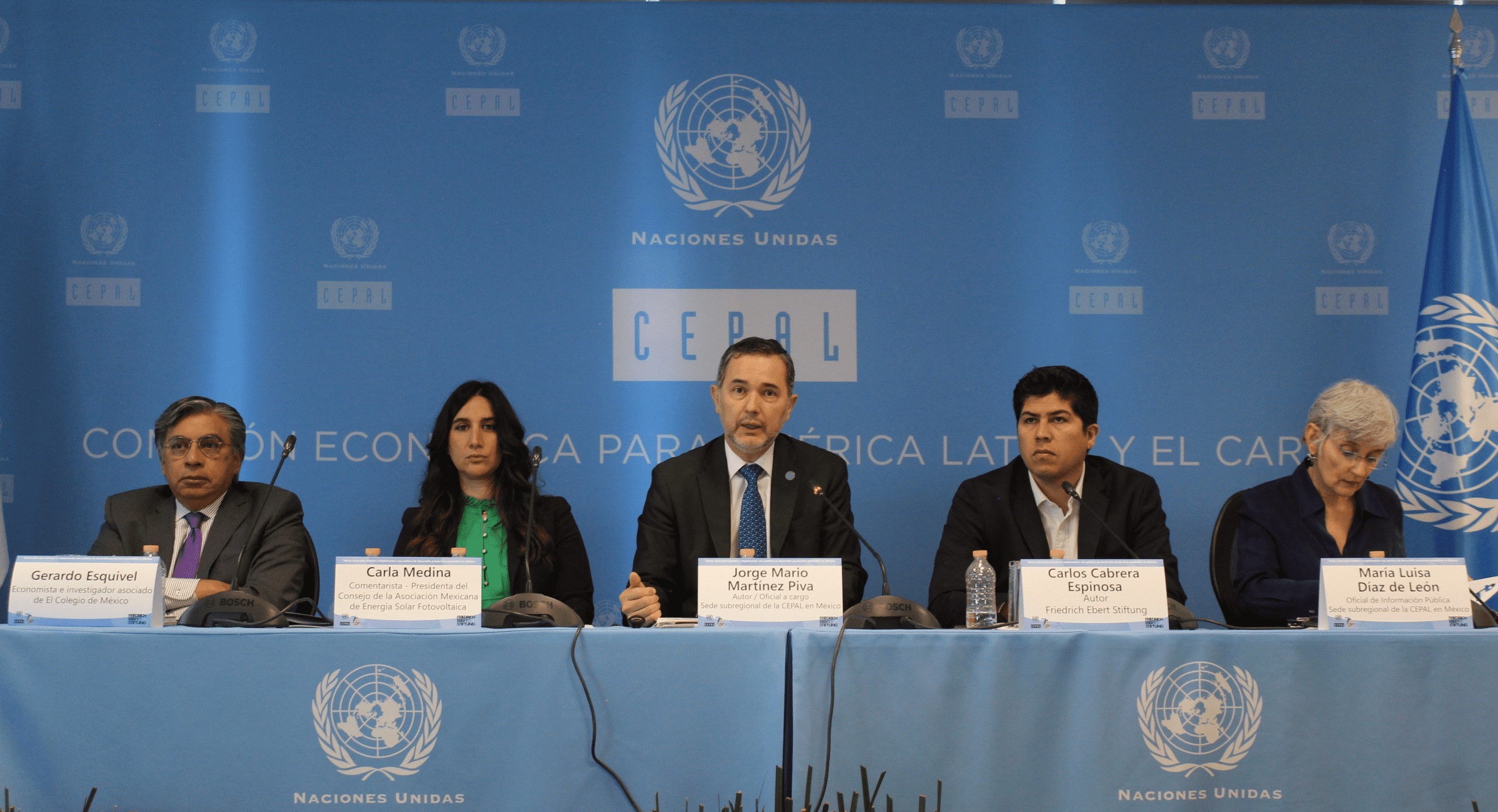It is an Opportune Time for Mexico to Design a Productive Development Policy: ECLAC
To achieve sustained, inclusive and sustainable growth, decisive action by the State is needed to conduct a productive development policy with the participation of the private sector and state governments.

Mexico is at the center of major productive and geopolitical changes that pose an opportunity for its economic, social and environmental development, Jorge Mario Martínez-Piva, Officer-in-Charge of the Subregional Headquarters of the Economic Commission for Latin America and the Caribbean (ECLAC) in Mexico, stated today.
The world is undergoing a period of profound changes, and geopolitical tensions are leading to geoeconomic fragmentation. The leading economic powers are incentivizing a new generation of productive development policies and the relocation of their production and supply chains. In this complex international scenario, Mexico has opportunities to attract investment and foster the balanced development of its territory. However, in order to move towards a more dynamic, complex and diversified economy, it needs a productive development policy that would promote innovation, create quality jobs and improve the population’s living conditions.
At the press conference where the document Key Issues for Designing and Implementing a Sustainable Productive Development Policy in Mexico was presented, Martínez-Piva explained that productive development policies must influence the direction of development by aligning efforts on technological innovation with social and environmental goals.
The document is the result of collaboration between ECLAC and the Friedrich Ebert Foundation (FES). On behalf of the foundation, Carlos Cabrera, its Economic Dialogue Coordinator, presented 11 recommendations for Mexico that emphasize the State’s central role in the design, implementation and coordination of productive development policies (PDPs), in coordination with the private sector and different levels of government; the prioritization of strategic sectors; the importance of having a National Strategy for Sustainable Productive Development; of having a robust innovation policy, articulated with these strategic sectors; and of redesigning technical vocational training systems, with special emphasis on incorporating women.
“The proposal is to create a Council for Sustainable Productive Development that would coordinate the implementation of a PDP in Mexico. This mechanism would be key for bringing about collaboration between the public and private sectors in an institutionalized fashion and would serve as a coordination mechanism for the implementation process,” Cabrera said.
Gerardo Esquivel, an economist and researcher associated with El Colegio de México, stressed that the document comes at a time when the world and Mexico are experiencing a paradigm shift in which we are moving from the stewardship of the market to the stewardship of the State, marking a post-neoliberal era.
“We are entering a new stage in which diverse countries across the world are taking these productive development policies back up and modernizing and updating them so they will not be subject to the criticism of the past, and they are reconfiguring the State itself and its role in the pursuit of transforming the productive structure. This document’s major contribution is that in a brief but very powerful document, it describes this context, and organizes and systematizes part of the discussion taking place at a global level,” he explained.
Meanwhile, the President of the Board of the Mexican Solar Energy Association, Carla Medina, stressed the energy sector’s strategic relevance for Mexico.
“There is a major opportunity to build a new energy accord, which would bring the country’s long-term vision up to date in terms of clean supplies, and would distribute responsibilities and benefits on that path. Sufficient, clean and low-cost (power) generation is a precondition for any development model that the Mexican State would seek to carry out. Without a doubt, Mexico must have the ability to plan and implement in the long term, not just the State, but also the rest of the stakeholders involved,” Medina stated.
The study that was unveiled is the result of dialogues with representatives of the public sector and business, trade-union and academic sectors, international institutions and civil society organizations in Mexico. It is part of a series of new studies and technical collaboration endeavors by ECLAC aimed at furthering and scaling up productive development policies in Latin America and the Caribbean.
Related content
Subregional headquarter(s) and office(s)
Related link(s)
Country(ies)
-
Mexico
Contact
María Luisa Díaz de León
- marialuisa.diaz@cepal.org
- +52 (55) 4170 5665